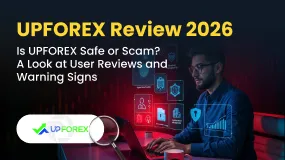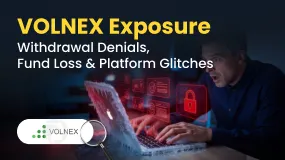Abstract:The SEC delays Fidelity's Ethereum ETF decision to March. Growing interest in crypto ETFs and Fidelity's strategy were analyzed.

The U.S. Securities and Exchange Commission (SEC) has opted to delay its verdict on Fidelity's proposal for a spot Ethereum exchange-traded fund (ETF). This announcement comes after a recent filing by the SEC, revealing that the new deadline for their decision is March 5.
Extension of Decision Deadline
The extension of the decision deadline allows the SEC additional time to carefully assess Fidelity's proposal and the wider implications of approving a spot Ethereum ETF. Fidelity initially submitted its proposal for the Fidelity Ethereum Fund back in November. In doing so, they referred to a previous legal ruling that questioned the SEC's reasoning behind rejecting spot crypto ETFs while permitting futures-based products.

This delay in the SEC's decision follows their recent authorization of 11 spot bitcoin ETFs. This move has stirred discussions within the financial industry about the possibility of a spot Ethereum ETF being the next milestone. It's worth noting that Fidelity is not alone in its pursuit of a spot in Ethereum ETF; it has joined forces with industry giant BlackRock in this endeavor, with both companies filing their applications late last year. These applications coincided with the launch of ether futures ETFs.
SEC's Stance on Ethereum
The SEC's decision to greenlight futures-based ETFs has raised speculation about their stance on Ethereum. It suggests that the regulator might be leaning towards treating Ethereum similarly to Bitcoin, implying that it may not be classified as a security.
Fidelity's Investor Protection Emphasis
Fidelity's filing emphasizes the importance of protecting investors, particularly in a landscape where U.S. investors are adopting higher-risk strategies to gain exposure to cryptocurrencies. In their filing, Fidelity highlights that “U.S. retail investors have lacked a U.S. regulated, U.S. exchange-traded vehicle to gain exposure to ETH.”

Referencing a recent legal decision involving Grayscale, Fidelity's filing points out inconsistencies in the SEC's stance, noting the agency's approval of futures-based crypto ETFs while rejecting spot-based ones. As a prominent asset management firm with $4.5 trillion under its management, Fidelity advocates for a regulated product that could mitigate the risks associated with unregulated crypto entities, as evidenced by issues with companies like FTX, Celsius Network, and BlockFi.
Potential Benefits of Ethereum ETF Approval
The filing goes on to state that “approval of a Spot ETH ETP would represent a major win for the protection of U.S. investors in the crypto asset space.” It suggests that if a Spot Ethereum ETP were available, a significant portion of the substantial investments tied up in these proceedings would remain securely in the brokerage accounts of U.S. investors.

Fidelity's move closely follows BlackRock's entry into the spot Ethereum ETF arena, indicating a growing interest among major asset managers in offering crypto-based investment products. The filing reveals Fidelity's intention to list the Fidelity Ethereum Fund on the Cboe BZX Exchange, providing investors with a regulated avenue for investing in Ether.
Increasing Interest and Competition
The quest for a spot Ethereum ETF in the United States is gathering momentum, with Fidelity becoming the seventh firm to seek SEC approval, joining the ranks of others like VanEck, 21Shares, ARK Invest, Hashdex, Grayscale, and Invesco Galaxy. This development showcases the increasing interest and competition in providing crypto-based investment opportunities to investors.













